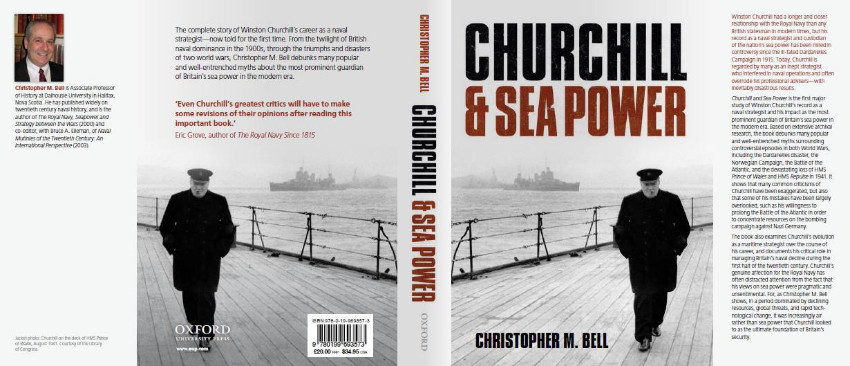Winston Churchill had a longer and closer relationship with the Royal Navy than any British statesman in modern times, but his record as a naval strategist and custodian of the nation's sea power has been mired in controversy since the ill-fated Dardanelles campaign in 1915. Today, Churchill is regarded by many as an inept strategist who interfered in naval operations and often overrode his professional advisers - with inevitably disastrous results.
Churchill and Seapower is the first major study of Winston Churchill's record as a naval strategist and his impact as the most prominent guardian of Britain's sea power in the modern era. Based on extensive archival research, the book debunks many popular and well-entrenched myths surrounding controversial episodes in both World Wars, including the Dardanelles disaster, the Norwegian Campaign, the Battle of the Atlantic, and the devastating loss of the Prince of Wales and Repulse in 1941. It shows that many common criticisms of Churchill have been exaggerated, but also that some of his mistakes have been largely overlooked - such as his willingness to prolong the Battle of the Atlantic in order to concentrate resources on the bombing campaign against Nazi Germany.
The book also examines Churchill's evolution as a maritime strategist over the course of his career, and documents his critical part in managing Britain's naval decline during the first half of the twentieth century. Churchill's genuine affection for the Royal Navy has often distracted attention from the fact that his views on sea power were pragmatic and unsentimental. For, as Christopher M. Bell shows, in a period dominated by declining resources, global threats, and rapid technological change, it was increasingly air rather than sea power that Churchill looked to as the foundation of Britain's security.
- The first major study of Churchill's record as a naval strategist and his impact on British sea power
- Debunks many popular and well-entrenched myths surrounding controversial episodes in both World Wars, including the Dardanelles disaster, the Norwegian Campaign, and the Battle of the Atlantic
- Looks at the evolution of Churchill's naval thinking from the beginning of the twentieth century through to the post-war period
- Offers many new and original insights into Churchill's long and controversial relationship with the Royal Navy, and his reputation as both strategist and war leader
Readership: All those interested in the life of Winston Churchill, Britain's role in the First and Second World Wars, and British international and military history in the twentieth century.

Book Reviews
What makes this book so readable and rewarding is its taut, paced development of Churchill as thinker, politician and Whitehall servant—we see his strategic world-view developing and we read his remarkably incisive, beautifully wrought appreciations of strategic dilemmas and problems.
Read complete review: " http://www.historybookclub.com
Professor Bell has written a very well argued defence of Winston Churchill against those who rebelled against his immense post-World War II prestige and imputed to him excessive meddling and repeated strategic errors in naval operations, throughout his career.
Read complete review: " http://standpointmag.co.uk
Bell combines archival and published material to make a convincing case for Churchill's reputation as a naval strategist...the author shows Churchill's approach to naval power to be unsentimental and pragmatic in his views on sea power...But Churchill also met the navy's most important needs and protected its long-term interests as well as possible in the context of changing strategic requirements, concludes Bell in this illuminating study.
Even Churchill's greatest critics will have to make some revisions of their opinions after reading this important book."


